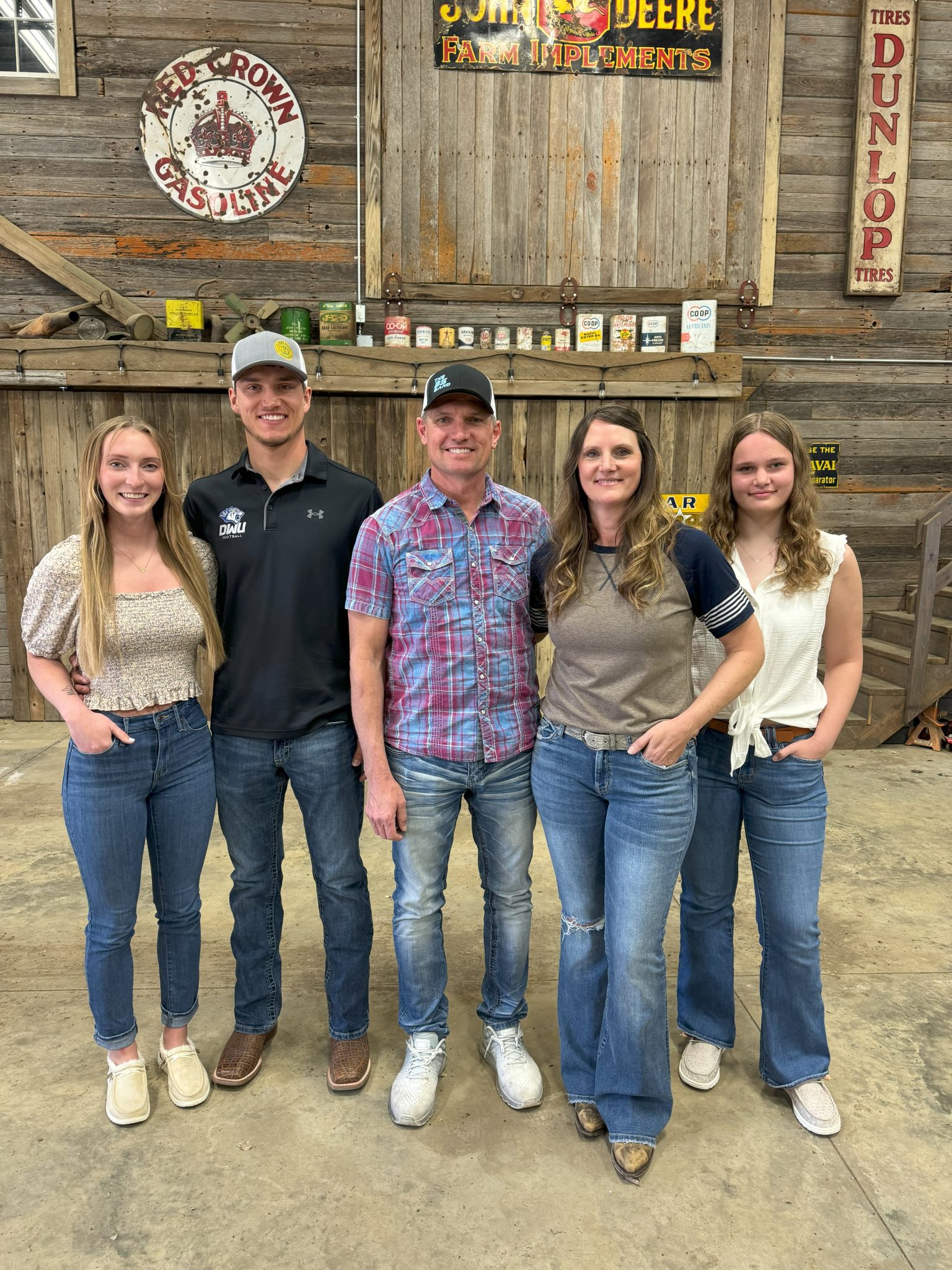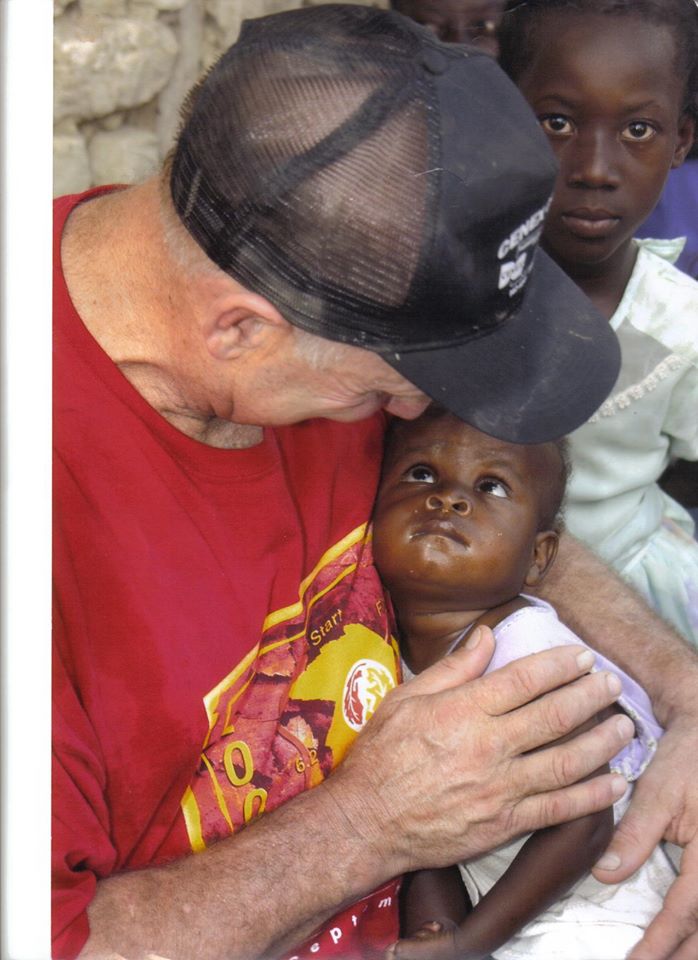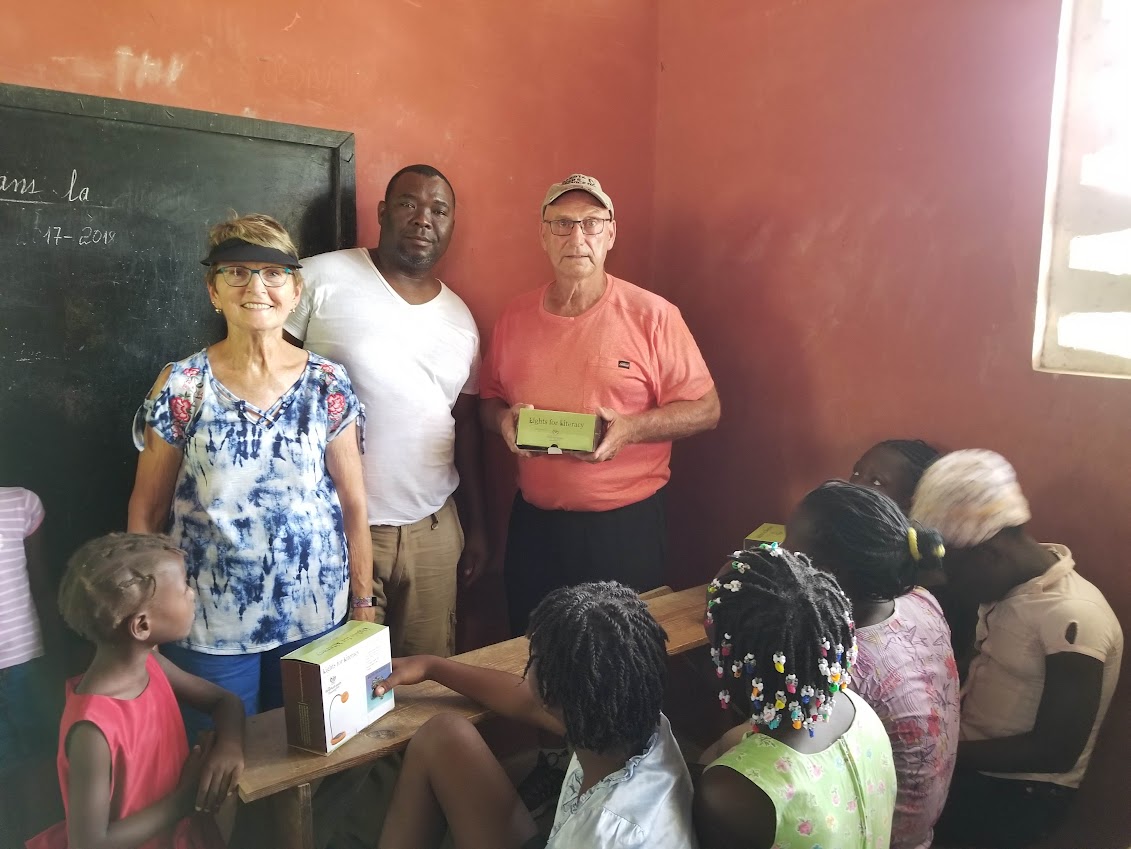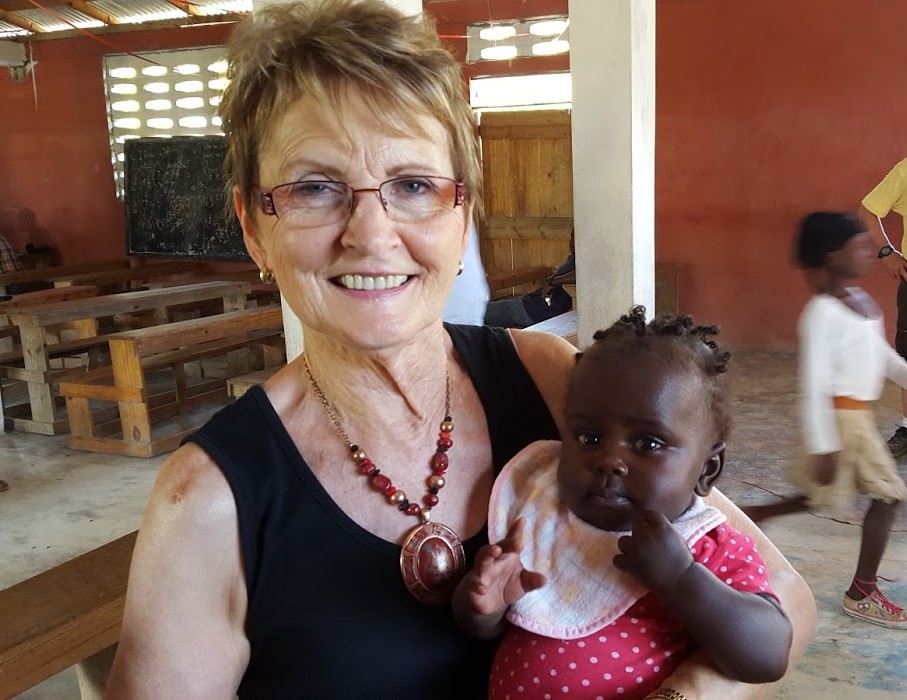Spurrell Farm Family

By Lura Roti for South Dakota Farmers Union
A 1998 conversation in Dave Hansen’s milking parlor changed the trajectory of Dave’s family’s farming operation.
“I remember I was planning a trip for us and I was going to ask Nicole to marry me,” recalled Brian Spurrell. “But I did not have any money, and I had worked quite a bit, but Dave still needed to pay me. So, after milking that morning, I said, ‘Dave, before I go on this trip, I need two things: I need to get paid, and I need permission to marry your daughter.’ Dave’s a joker and he said, “You have my permission.”
This is how Dave and Jerilyn Hansen’s daughter, Nicole, came to marry Brian Spurrell. It is also the reason this nearly a century-old Turner County family farm was given a future beyond the third generation. “The opportunity does not always exist for families who have girls.” Dave said. “The assumption is most times that the boys will take over. Our two sons did not want to farm. Nicole picked a husband who wanted to be a farmer, so it worked out really well.”
Brian started working with Dave on the farm when he was 11. Only a fifth-grader, he hitched a ride from his family’s Wakonda home to the farm with another employee, Daniel Krause.
Brian and Nicole started dating when they were sophomores in high school. She attended Irene High School and Brian attended Wakonda High School. In 2007, the schools merged, so their children attended Irene-Wakonda High School: Gavin, 21, is a recent Dakota Wesleyan University graduate; Dashel, 18, is wrapping up his freshman year at South Dakota State University; and Lara, 14, will be a freshman at Irene-Wakonda fall 2024.
About the time Brian and Nicole began making wedding plans, a small farmstead came up for sale almost next door to Dave and Jerilyn.
“I graduated from USD, we bought this small farm and we got married in June – 1999 was a big year for us,” Nicole explained.
To make room for the next generation, Dave and Brian expanded the dairy herd from 60 to 120. They put in a new parlor system and Brian began doing custom farming for neighbors. Brian and Nicole also expanded the family’s beef herd.
Over the years they added crop acres when it made sense – but Turner County farm ground is competitive. “Any time a piece of land comes up for sale, we look at different strategies to try and acquire it,” Brian said. “Over the years it has gotten a lot tougher because you are not just bidding against other farmers. Anymore, you are bidding against land investors from town who buy the land and then rent it back to farmers for big bucks.”
To help expand family income, Nicole and her mom, Jerilyn, started an organizing business, The Neat Freaks, in 2010. They kept busy until 2020 when Nicole had an opportunity to work with her aunt at a pre-order clothing boutique – Charis Clothing By Tammy. Nicole really enjoyed her job and last fall purchased the business.
Brian sings in a band he owns with a friend, the BS Band, nearly every summer weekend. He also expanded the custom farming business to include land rolling. Brian and neighbor, Kevin Gale, operate the business together. Land rolling protects harvest equipment because the 46-foot wide rollers flatten any rocks brought to the surface during planting.
“We are always late getting our own crops in because we are so busy planting and land rolling for our customers. And there are a lot of times when we are too busy – one day it seemed like I had a 1,000 calls just lining up fields,” Brian said.
So why are Dave, Brian and Nicole willing to take so much on and postpone their own farmwork? Gavin, Dashel and Lara.
In 2024, their son, Gavin, and his fiancé, McKenna, returned to the farm. And after college, Dashel plans to return as well. At this time, Lara isn’t sure what she wants to do after college.
“Our strategy has always been, we don’t turn away jobs. We work to make as much profit on and off the farm as possible so we can support our kids if they want to return to farm too,” Brian said. “It seems like in today’s farming industry, you have to get big or get out. We want to keep this family farm going.”
Dec. 7, 1941
The determination of the current generation making decisions on the family’s farm could not make Dave happier.
His grandpa, Jens Peter or “JP” Hansen, was sponsored by a local Danish farmer to emigrate to America in 1902. JP met Dave’s grandma, Hanne Marie “Mary,” because she was also a recent immigrant from Denmark and was working on the same farm. After they paid the farmer back, the couple purchased a small farm near Irene.
JP and Mary had nine children. Dave’s dad, Earl, was born in 1917 and like his parents, wanted to farm.
“Dad looked at this farm on Dec. 7, 1941. We always remember the date because that was the day Pearl Harbor was bombed,” Dave said.
Dave is also one of nine. “We were poor. But that does not mean unhappy, or that we did not eat regular – it just meant there were limited things you could do and have. We did not have a television, but I had an extremely happy childhood,” Dave said.
After high school, Dave paid his way to attend South Dakota State University. He had plans to return to farm with his parents, Earl and Edith. “I never had any desire to do anything but farm. But there were also other opportunities in life, so this is the reason I wanted an education.”
Although he wanted to return to the farm right after college, the military had other plans. He was drafted during the Vietnam War and served as an Army Chaplin Assistant in Ft. Sill, Oklahoma. Working as a Chaplin’s Assistant was a good fit for Dave.
“As a 12-year-old I heard a missionary speak in church and I thought, someday that will be me,” Dave said.
Fast-forward 30 years and Dave is a full-time dairyman and farmer. “The Methodist Church of the Dakotas was sending a mission team to Haiti, I thought, ‘this is my chance.’”
Dave and Jerilyn spent two weeks helping build a school in Haiti.



“It was life changing. I did not realize that so many people live in such poverty. I vowed that I would return.”
Dave has returned to Haiti 60 times. In 1989 he started what became a non-profit, Helping Hands for Haiti. The organization works with local leaders in Haiti to help fund churches, send children to school and drive economic development. “It is my belief that God is where my hope is and that He has allowed me, a farmer, to help in Haiti,” Dave said.
J-DEE Dairy
In 2015, the family decided it was time to sell the dairy herd.
“We saw how much free time we did not have. We all wanted to go to the kids’ ball games and that is just not possible when you need to be home at 4 p.m. to milk every day,” Brian explained.
Dave said although the decision was a tough one, the timing was right. Through careful genetic selection, he had achieved he and Earl’s lifelong dream to have one of the top producing herds in the state. In 1982, the South Dakota Dairy Herd Improvement Association recognized J-DEE Dairy as the highest producing herd in South Dakota. J-DEE stands for Jerilyn-Dave, Earl, Edith.
“I worried that when the time came I might be depressed. It was something my dad and I had built up and I was walking away,” Dave said.
In the end it was the buyer who put Dave’s mind at ease. He knew the dairy producer who bought the herd would take good care of his cows. The price was right. “And as he was walking through the herd, he stopped and looked at me, and he was sincere when he said, ‘this is the best-looking herd of cattle I have ever seen.’ For some reason, that gave me the satisfaction of knowing we had accomplished what we were trying to do.”
Planning for the future
When Brian and Nicole decided they wanted to build their life and raise their family on the farm, Dave made it clear that Brian was welcome.
“You cannot find a more open-minded guy. He was always open to me trying different things. Now that my sons are returning, I need to remind myself of that because some of the stuff I came up with – it had to be difficult for him, but he said, ‘let’s try it.’”
Dave said he had a good mentor in Earl. “My dad said, ‘you are going to eventually run this operation,’ so he encouraged me to do things my way. Of course, it is tempting to tell someone that it will not work and the reason they will fail. But sometimes, people need to have that experience for themselves.”
Because his sons, Travis and Ross have off-farm careers – Travis is a child psychiatrist and Ross works in IT for AgTegra – Dave and Jerilyn put together an estate plan that works for keeping the farm in the family.
Brian and Nicole said this foresight means a lot not only to them, but to their sons.
“Farming is all I’ve ever wanted to do,” Gavin explained. “It goes back to when my brother, Dashel, and I would lay on the grass and play with our farm toys while watching our dad tilling a field or planting trees.”
Farming was top of mind when Gavin attended college. “I thought about my classes and chose ones that would teach me things that would allow me to bring value back to the farm.”
An ag systems technology major, Dashel said he feels the same way. “I am constantly thinking about how I would use what I am learning in my classes on my farm. I want to bring something home to the farm. I am minoring in accounting for this reason, so that I can maybe help out in this area.”
Like his brother, becoming a farmer has been a goal of Dashel’s since he was a child playing with toy tractors. “Operating equipment and being outside on the farm, this is what I enjoy.”
Understanding their sons’ passion for farming continues to drive Brian and Nicole. Because it is the family’s goal to have the farm support four families, they are working on some new business ideas.
“I did not want this farm to fail before. But now that my kids are hoping to take over, I really don’t want it to fail,” Brian said. “I think a lot about sustainability, and I am taking knowledge from the previous generation and applying it to the future.”
To learn more about Helping Hands for Haiti visit, www.helpinghandsforhaiti.com and to view Nicole’s clothing boutique, visit www. charisclothingbytammy.com

